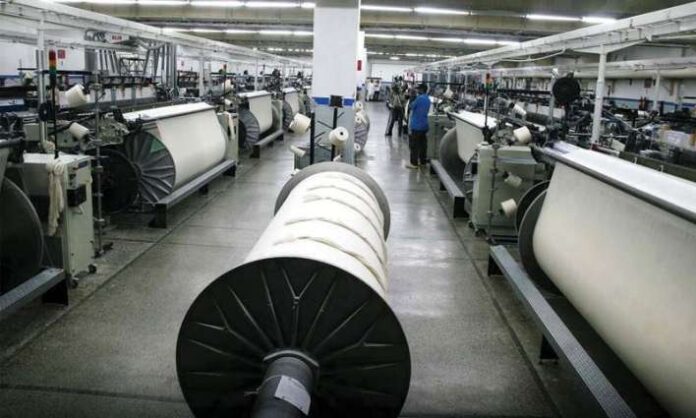LAHORE: The leadership of All Pakistan Textile Mills Association (APTMA) is seeking appointments from Prime Minister Imran Khan and his finance adviser Abdul Hafeez Shaikh to discuss the five-year long-term export policy, including the Power Division’s recent decision to backtrack from providing regionally competitive energy price to the export sector i.e. 7.5 cents/kilowatt-hour.
The Power Division, through a statement issued on January 13, had directed the distribution companies to charge all add-ons to the competitive price of 7.5cents/kWh, including fixed charges of Rs0.60/kWh, variable charges of Rs12.98/kWh, financial cost surcharge of Rs0.43/kWh, Neelum Jhelum surcharge of Rs0.10/kWh, electricity duty (1pc) on the total bill at 0.06, and Quarterly Tariff Adjustments (QTA) at 1.80 in the first and second quarter and at 0.63 in the third and fourth quarter.
APTMA, in its letter to the Ministry of Commerce on January 15, had asked the ministry to immediately submit a summary to the Economic Coordination Committee seeking withdrawal of the Power Division’s Jan 13 letter.
A commerce ministry official told this scribe that the prime minister and his economic team have understood the importance of regionally competitive electricity rates and had reiterated time and again that they would provide electricity at 7.5 cents/kWh (all inclusive) to the export-orientated industry.
“But unfortunately, the prime minister is backing off from the commitment he made to the export sector,” he stated.
Rejecting the add-ons to the competitive price of electricity, APTMA’s Group Leader Gohar Ijaz said, “We need a clear export policy to move forward as we (textile industry) cannot run pillar to post every day.”
He continued, “Seventy per cent of Pakistan’s exports are now stitched products and we reached this target because the government provided us electricity on competitive rates; we could also convert the remaining 30pc in next five years provided we are given a five-year policy which includes competitive energy pricing as one of its major components.”
Talking to Profit, APTMA Punjab’s Senior Vice Chairman Abdul Rahim Nasir said that the government was providing electricity to the export sector at 7.5 cents/kWh since January 2019, but unfortunately the Power Division is now backtracking from its stance.
“Textile, which has shown over 25pc growth in terms of quantity, will be hit very hard if electricity rates are increased, as it would make Pakistani exporters uncompetitive in the global textile market,” Nasir said, adding that the Power Division wants to add all additional taxes now, including QTA, FPA and other surcharges, which would be a huge blow to the export sector.
According to sources, the APTMA leadership, in its meeting with PM Imran Khan, would also discuss reduction in corporate tax rate for exporters; while recommending that upper cap should be fixed at 25pc and subsequently reduced to 15pc, besides exemption from 1pc of turnover tax and adjustment of input tax on materials used for building of 1,000 new plants that would convert raw materials into finished products and made-up garments.
The APTMA leadership would further discuss reduction in sales tax rate, simplification of refunds system, besides asking the government to setup a specially designated FBR cell to deal with their complaints.
“We will recommend the PM and finance adviser to implement no sales tax on machinery imports,” a senior APTMA official, who would be part of that meeting, told Profit. “They will also discuss allocation of funds to operationalize sustainable production centres to provide services to the entire textile value chain.”
He said the APTMA officials would ask for government’s assistance to set up effluent plants to meet European Union (EU) and American criterion through subsidized credit or grants.
“The APTMA members will also discuss the setting up of duty-free warehouses, formation of sustainable production and consumption policy, revival of power looms industry in clusters, construction of integrated textile parks and product development centres.





They should branch out into film production since they make the best dramas!